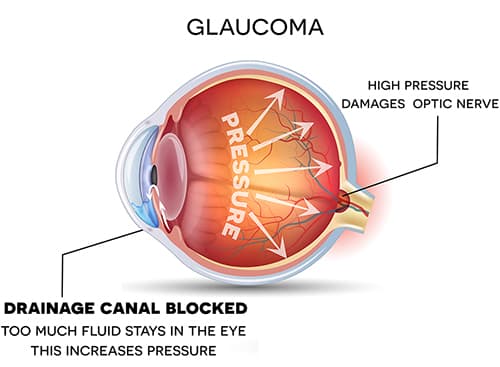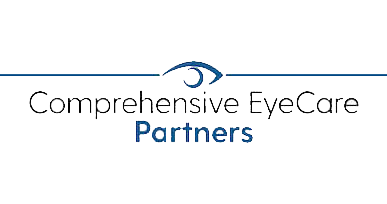
What is glaucoma?
Glaucoma is a group of usually asymptomatic disorders and diseases. The way they are related is there is characteristic optic nerve damage (or as we like to say, loss of the telephone lines that carry information from the eyeball to the brain).
Vision loss where intraocular pressure lowering is the only known way to slow and possibly prevent worsening. Glaucoma is the second leading cause of blindness worldwide after cataracts. Over 50% of people with active glaucoma in the United State do not know they have the disease.
The optic nerve is like a cable that connects the eye to the vision centers in the brain. With glaucoma, this nerve is damaged by a variety of factors, most commonly elevated pressure within the eye itself. This can lead to vision impairment and even blindness. Importantly, glaucoma can rob you of your vision without notice, making medical eye exams important to detect the disease process early.
Who should be screened for glaucoma?
Screening for glaucoma is recommended for all patients. Contact our Glaucoma Specialists, John J. Whitehead, MD and Roger Anderson, MD for a screening.
Anyone who is in the following groups could be at greater risk:

- Age—glaucoma is much more common over the age of 60
- Family history of glaucoma
- Having diabetes
- Being of African descent or Hispanic
- Being nearsighted
- Using oral or inhaled steroids for other medical conditions
- History of eye injury
How is glaucoma evaluated?
Glaucoma is detected through a comprehensive dilated eye exam that includes the following:
- Visual acuity test. This eye chart test measures how well you see at various distances.
- Visual field test. This test measures your peripheral (side vision). It helps your eye care professional tell if you have lost peripheral vision, a sign of glaucoma.
- Dilated eye exam. In this exam, drops are placed in your eyes to widen, or dilate, the pupils. Your eye care professional uses a special magnifying lens to examine your retina and optic nerve for signs of damage and other eye problems. After the exam, your close-up vision may remain blurred for several hours.
- Tonometry is the measurement of the pressure inside the eye by using an instrument called a tonometer. Numbing drops may be applied to your eye for this test. A tonometer measures pressure inside the eye to detect glaucoma.
- Pachymetry is the measurement of the thickness of your cornea. Your eye care professional applies a numbing drop to your eye and uses an ultrasonic wave instrument to measure the thickness of your cornea.
How glaucoma is treated at Evergreen Eye Center
To understand and appropriately treat your glaucoma, we use the most advanced technologies available today. Optical coherence tomography (OCT) helps us analyze the eye’s nerve fibers allowing us to detect disease before blindness even begins. Our advanced Humphrey Visual Field analyzer allows early detection of peripheral blind spots before the disease becomes noticeable.
A combination of these advanced technologies allows our doctors to diagnose and stop the disease before it becomes noticeable or disabling. Once you have been diagnosed with glaucoma, effective treatments from eyedrops, and pharmacological management to high-tech laser procedures can slow or even halt the disease. Our expert practitioners offer the latest in pharmacologic and laser interventions.
Treatment for glaucoma centers on lowering intraocular pressure, which is the only known modifiable risk factor. That is the only known means of slowing or stopping the progression of glaucoma damage. Lowering intraocular pressure can be done initially with medications (eye drops) and perhaps glaucoma LASER surgery. Incisional glaucoma surgery can be done with a trabeculectomy or glaucoma drainage implant.
Untreated glaucoma can lead to irreversible blindness. Proper follow-up with your doctor including scheduled monitoring and testing are the best ways to evaluate for progression. Achieving target intraocular treatment pressure is the only way to slow or prevent permanent vision loss.
To schedule an appointment to see an Evergreen ophthalmologist specializing in advanced glaucoma care, call 800-340-3595.

